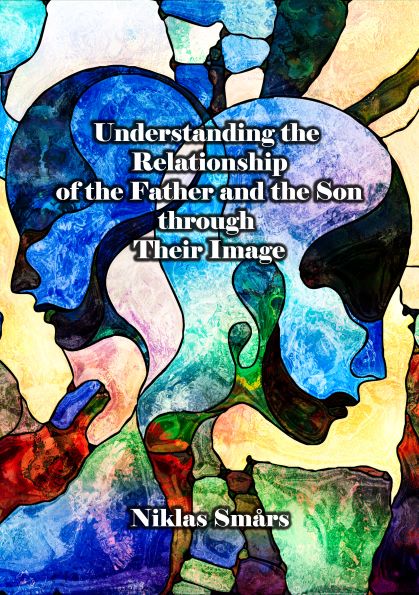Galatians 2:20 and the Laodicean Condition
What does Galatians 2:20 have to do with the Laodicean condition?
Let’s start with the letter to the Laodicean church found in Revelation 3:14-22.
14 And unto the angel of the church of the Laodiceans write; These things saith the Amen, the faithful and true witness, the beginning of the creation of God;
15 I know thy works, that thou art neither cold nor hot: I would thou wert cold or hot.
16 So then because thou art lukewarm, and neither cold nor hot, I will spue thee out of my mouth.
17 Because thou sayest, I am rich, and increased with goods, and have need of nothing; and knowest not that thou art wretched, and miserable, and poor, and blind, and naked:
18 I counsel thee to buy of me gold tried in the fire, that thou mayest be rich; and white raiment, that thou mayest be clothed, and [that] the shame of thy nakedness do not appear; and anoint thine eyes with eyesalve, that thou mayest see.
19 As many as I love, I rebuke and chasten: be zealous therefore, and repent.
20 Behold, I stand at the door, and knock: if any man hear my voice, and open the door, I will come in to him, and will sup with him, and he with me.
21 To him that overcometh will I grant to sit with me in my throne, even as I also overcame, and am set down with my Father in his throne.
22 He that hath an ear, let him hear what the Spirit saith unto the churches.
If we believe, as I do, that the condition depicted in the Laodicean church represents the spiritual condition of God’s remnant people today, then we see in this message revealed directly to John by his precious Lord and Master a very sad, even tragic, picture of a people who should be “the light of the world” (Matt 5:14). But God’s remnant people are in a sad spiritual state. They have lost their first love and are lukewarm. They are spiritually wretched, miserable, poor, blind and naked according to the text. That is us – perhaps not individually but certainly in the corporate sense.
Consider the following passage from 1 Selected Messages page 357:
Mark the following words: "Because thou sayest, I am rich, and increased with goods, and have need of nothing; and knowest not that thou art wretched, and miserable, and poor, and blind, and naked" (Revelation 3:17). Here is represented a people who pride themselves in their possession of spiritual knowledge and advantages. But they have not responded to the unmerited blessings that God has bestowed upon them. They have been full of rebellion, ingratitude, and forgetfulness of God; and still He has dealt with them as a loving, forgiving father deals with an ungrateful, wayward son. They have resisted His grace, abused His privileges, slighted His opportunities, and have been satisfied to sink down in contentment, in lamentable ingratitude, hollow formalism, and hypocritical insincerity. With Pharisaic pride they have vaunted themselves till it has been said of them, "Thou sayest, I am rich, and increased with goods, and have need of nothing." {1SM 357.2}
What caught my attention here is that the words “Here is represented a people who pride themselves in their possession of spiritual knowledge and advantages” apply equally to those Seventh-Day Adventists who believe in the triune God as well as those Seventh-Day Adventists and others who believe in the “the only true God, and Jesus Christ, whom thou hast sent.” (John 17:3). Here is a frightening thought. Knowledge of the truth is not enough! We who believe in the Father and His Son are just as susceptible to think that we are “rich, and increased with goods, and have need of nothing” as are those who believe in the three-in-one god.
The Laodicean condition does not discriminate on the basis of the one in whom you believe. According to verse 17, it is not what you know but what you do NOT know that is characteristic of the Laodicean condition for it says “and knowest not that thou art wretched, and miserable, and poor, and blind, and naked.”
So, how did the church corporately get into this dreadful state? The short answer is by our unbelief. A longer answer is found in Testimonies for the Church Volume 5 on pages 75 and 76. Remember this was written in June of 1882. Here we are 140 years later and look how accurately these words apply to our church today.
I have been shown that the spirit of the world is fast leavening the church. You are following the same path as did ancient Israel. There is the same falling away from your holy calling as God's peculiar people. You are having fellowship with the unfruitful works of darkness. Your concord with unbelievers has provoked the Lord's displeasure. You know not the things that belong to your peace, and they are fast being hid from your eyes. Your neglect to follow the light will place you in a more unfavorable position than the Jews upon whom Christ pronounced a woe. [5T 75,76]
These are strong words. The next words are particularly pertinent and describe a trend that has clearly existed since before 1882.
I have been shown that unbelief in the testimonies has been steadily increasing as the people backslide from God. It is all through our ranks, all over the field. But few know what our churches are to experience. (5T 76)
Remember, this was written in 1882 so the statement that unbelief “has been steadily increasing” shows that it was a problem before 1882 and has not been getting any better since. This is clearly telling us that as a people we are in a lot of trouble but we “knowest not that thou [we] art wretched, and miserable, and poor, and blind, and naked.”
The big question is, how much longer will this be allowed to continue? Consider this:
I saw that at present we are under divine forbearance, but no one can say how long this will continue. No one knows how great the mercy that has been exercised toward us. But few are heartily devoted to God. There are only a few who, like the stars in a tempestuous night, shine here and there among the clouds.
Many who complacently listen to the truths from God's word are dead spiritually, while they profess to live. For years they have come and gone in our congregations, but they seem only less and less sensible of the value of revealed truth. They do not hunger and thirst after righteousness. They have no relish for spiritual or divine things. They assent to the truth, but are not sanctified through it. Neither the word of God nor the testimonies of His Spirit make any lasting impression upon them. Just according to the light, the privileges, and opportunities which they have slighted will be their condemnation. Many who preach the truth to others are themselves cherishing iniquity. The entreaties of the Spirit of God, like divine melody, the promises of His word so rich and abundant, its threatenings against idolatry and disobedience - all are powerless to melt the world-hardened heart. (5T 76)
Notice those last two sentences. Preaching the truth is no protection against cherishing iniquity. The world-hardened heart is impervious to the calling of the Spirit of God.
The spiritual condition of our church has brought us under rebuke according to Revelation 3:19. The Laodicean message is a divine rebuke. It is evidence of a partial rejection or separation. The union between Christ and the church is not complete as is clearly evident in verse 20 where Christ is outside the door knocking and pleading to be invited in. What a tragedy. The Son of God is not in the innermost sanctuary of the hearts of His people. He does not have full possession of His church-temple.
Here is where we come to Galatians 2:20 which says:
I am crucified with Christ: nevertheless I live; yet not I, but Christ liveth in me: and the life which I now live in the flesh I live by the faith of the Son of God, who loved me, and gave himself for me.
Here is the experience of someone who has heard the knocking and opened the door and let Him in. “Nevertheless I live, yet not I, but Christ lives in me”. These are words of great truth and power. These are words of great encouragement.
In writing about this verse, A. T. Jones said:
Thus this verse is a beautiful and solid foundation of Christian faith for every soul in the world. Thus it is made possible for every soul to say, in full assurance of Christian faith, "He loved me." "He gave Himself for me." "I am crucified with Christ." "Christ liveth in me." [RH Oct 24, 1899]
The infinite chasm between Galatians 2:20 and Revelation 3:17 defines the seriousness of the Laodician condition. It puts it in perspective when you consider “but Christ liveth in me” on the one hand and “wretched, and miserable, and poor, and blind, and naked” on the other. It is spiritual life verses spiritual destitution.
With Christ living in me, then, “I live by the faith of the Son of God, who loved me, and gave himself for me.”
Those are the words that break me down – “the Son of God, who loved me, and gave Himself for me”. Don’t those words – “the Son of God, who loved me, and gave Himself for me” – just grab at your heart strings? For me, this brings a clearer understanding of what Jesus was saying in Matthew 21:42-44:
42 Jesus saith unto them, Did ye never read in the scriptures, The stone which the builders rejected, the same is become the head of the corner: this is the Lord's doing, and it is marvellous in our eyes? 43 Therefore say I unto you, The kingdom of God shall be taken from you, and given to a nation bringing forth the fruits thereof.
44 And whosoever shall fall on this stone shall be broken: but on whomsoever it shall fall, it will grind him to powder.
Fall on the stone and be broken, the same cornerstone on which the great advent message was first built, the cornerstone that the later builders rejected when they re-built the church on the new theology, the same cornerstone that will again be the chief cornerstone to the remnant church. Fall on that cornerstone we are told. That cornerstone, abounding in love and grace and truth, is the only answer for the Laodicean condition. That cornerstone “who loved me, and gave Himself for me”.
This is the righteousness by faith message that the Laodicean church so desperately needs to hear and accept. “I counsel thee to buy of me gold tried in the fire, that thou mayest be rich; and white raiment, that thou mayest be clothed” pleads He who is knocking on the door of our hearts.
Since the time of the Minneapolis meeting, I have seen the state of the Laodicean Church as never before. I have heard the rebuke of God spoken to those who feel so well satisfied, who know not their spiritual destitution. Jesus speaks to these as he did to the woman of Samaria: "If thou knewest the gift of God, and who it is that saith to thee, Give me to drink; thou wouldst have asked of him, and he would have given thee living water." {RH, August 26, 1890 par. 4}
The church is in the Laodicean state. The presence of God is not in her midst. …. What a terrible thing it is to exclude Christ from His own temple! What a loss to the church! Our Redeemer sends His messengers to bear a testimony to His people. He says, "Behold, I stand at the door, and knock. If any man hear My voice, and open the door, I will come in to him, and will sup with him, and he with Me." But many refuse to receive Him, because they fear that He will be an expensive guest. The Holy Spirit waits to soften and subdue hearts, but they are not willing to open the door and let the Saviour in; for they fear that He will require something from them. And so Jesus of Nazareth passes by. He longs to bestow on them His rich blessings and gifts of grace, but they refuse to accept them. (Notebook Leaflets from the Elmshaven Library Vol 1 p 99)
The Laodicean message is the most scathing rebuke contained in the Holy Scriptures comparable only to that given to ancient Israel and recorded in Isaiah chapter 1. The picture would be hopeless and completely discouraging if not for a most import and remarkable fact. The rebuke is a rebuke of love! The Laodicean message is a love message spoken not in anger to wound and destroy, but with the most tender love to save and restore. The Son of God reproves and chastises the remnant of His people because He loves them dearly and longs to have His love awaken a response of love in their hearts – that means in my heart.
Note that His poor people are honestly deceived for He says “And knowest not that thou art wretched, and miserable, and poor, and blind, and naked” in Revelation 3:17. They don’t know the condition they are in. They are not trying to cover it up, they simply do not know. Remember we are talking corporately here and not individually.
The message of the True Witness finds the people of God in a sad deception, yet honest in that deception. They know not that their condition is deplorable in the sight of God. (3T 252.4).
The good news is that there is always hope for the honest person even though he or she may presently be deceived. Like so many others, I was once deceived and every moment the enemy is still trying to win me back by his deceptions. We are told:
The word of God is plain to all who study it with a prayerful heart. Every truly honest soul will come to the light of truth. (GC 521.3)
The Laodiceans who are honest will accept the rebuke and repent of their lukewarmness and reform their lives through the indwelling of the only begotten Son of God.
Loving Father, keep me from spiritual pride I beseech thee. Keep me from ever thinking that I am rich and increased in goods and have need of nothing. May my daily experience be I am crucified with Christ: nevertheless I live; yet not I, but Christ liveth in me: and the life which I now live in the flesh I live by the faith of the Son of God, who loved me, and gave himself for me.





